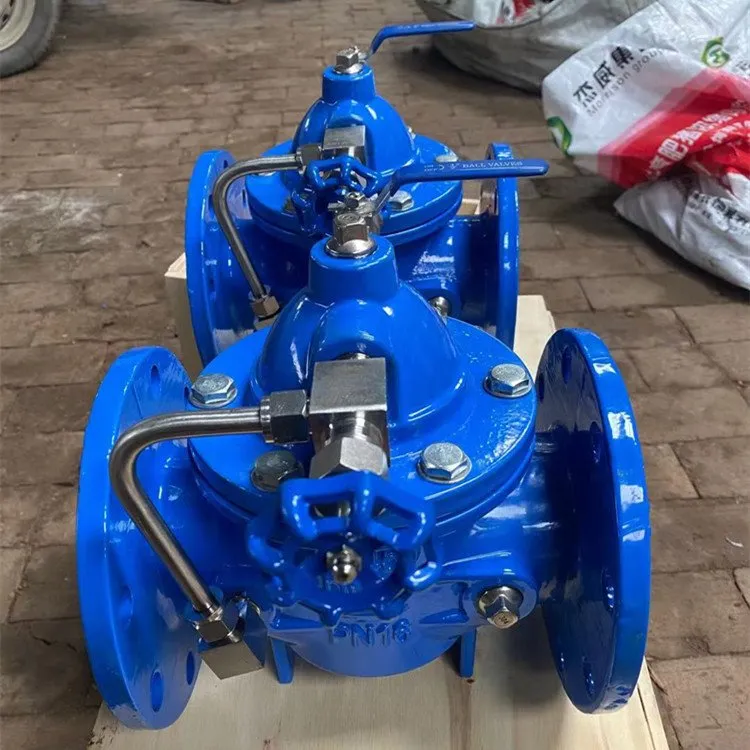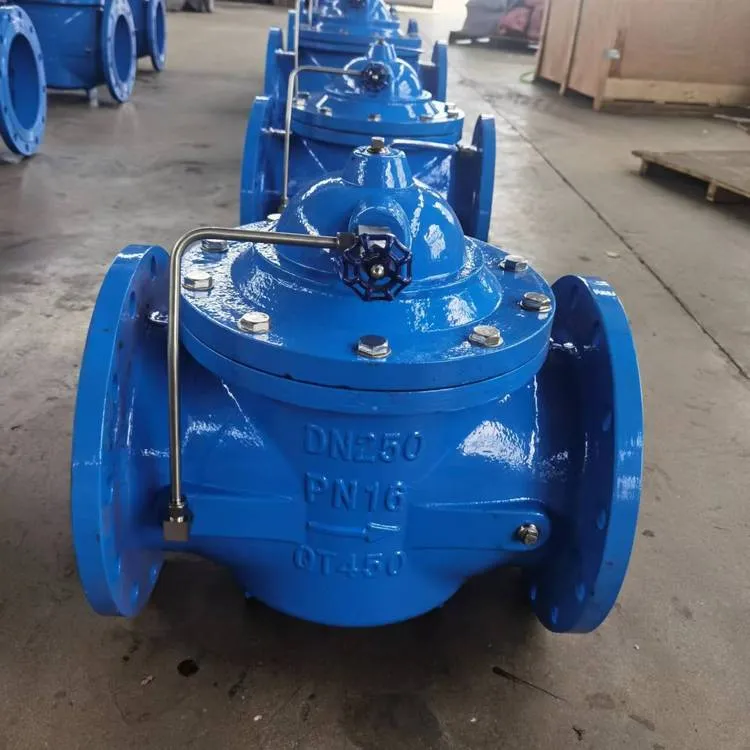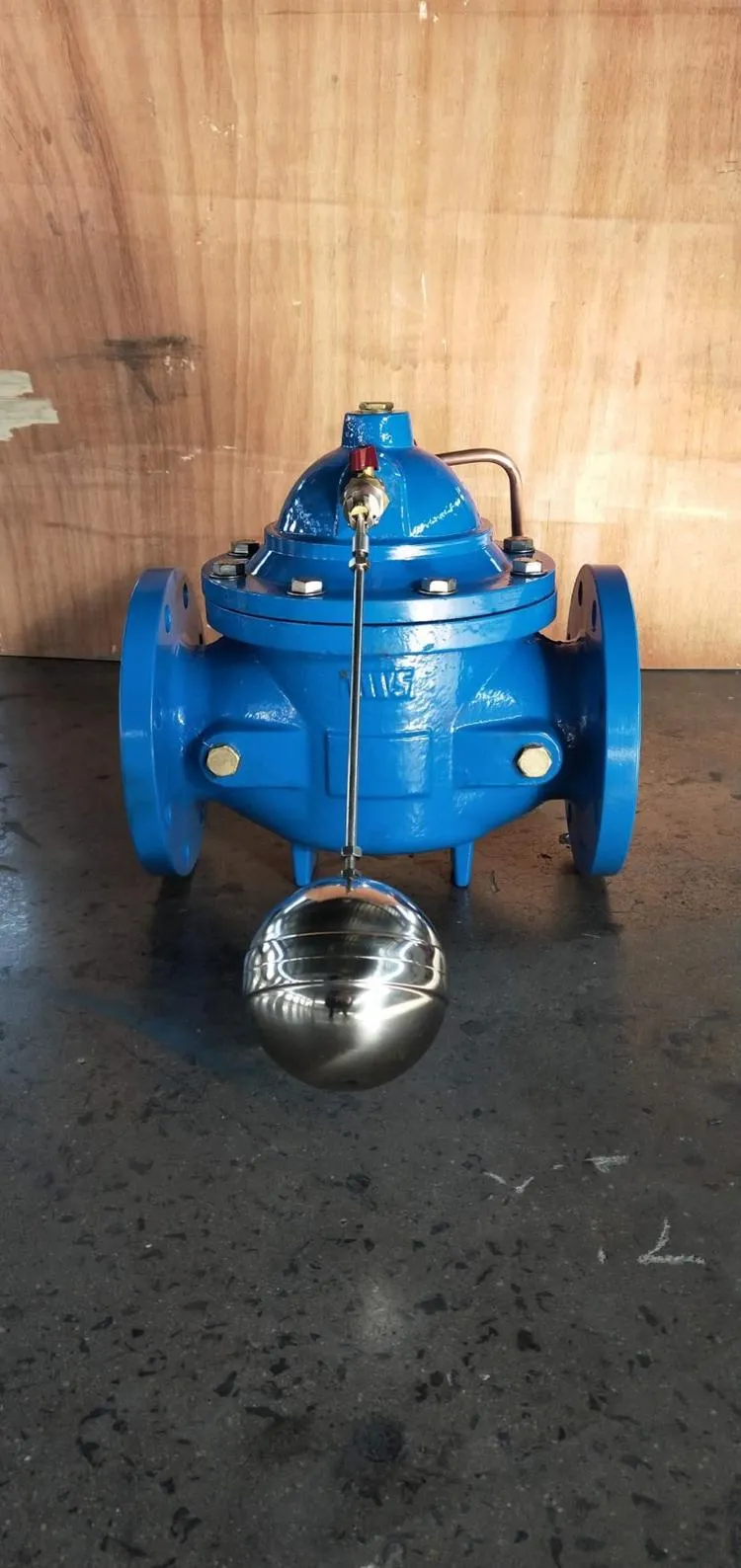جون . 16, 2025 09:42 فہرست پر واپس جائیں۔
Impact of Control Valve Maintenance on Pipeline Safety
Pipeline systems are the backbone of modern industrial infrastructure, enabling the efficient transport of liquids, gases, and other media across vast distances. At the heart of these systems lie control valves, which regulate flow, pressure, and operational stability. Proper maintenance of these valves is not just a technical requirement—it is a critical factor in ensuring long-term pipeline safety, reliability, and compliance with industry standards. This article explores how maintaining specific types of control valves, including flow control valves, pressure control valves, and water pressure control valves, contributes to the integrity of pipeline operations.

The Role of Flow Control Valves in Pipeline Efficiency
Flow control valves are engineered to manage the rate of fluid movement within a pipeline. By adjusting the valve’s opening, operators can precisely control volumetric flow, ensuring optimal performance for processes ranging from chemical manufacturing to water distribution. However, the efficiency of these valves hinges on regular maintenance.
Over time, wear and tear from abrasive fluids, temperature fluctuations, or particulate buildup can compromise valve components such as seals, actuators, and trim parts. For instance, a partially blocked flow control valve may cause uneven flow distribution, leading to pressure surges or cavitation. These issues not only reduce system efficiency but also increase the risk of pipeline leaks or bursts.
Proactive maintenance strategies, such as routine inspections, lubrication, and replacement of degraded parts, help sustain the precision of flow control valves. Advanced diagnostic tools, including vibration sensors and flow rate monitors, further enable predictive maintenance, minimizing unplanned downtime. By prioritizing the upkeep of flow control valves, operators ensure consistent flow regulation, energy savings, and compliance with safety protocols.

Ensuring Stability Through Pressure Control Valve Maintenance
Pressure control valves are indispensable for maintaining safe operating conditions in pipelines. These valves automatically adjust to maintain preset pressure levels, preventing overpressurization that could damage equipment or endanger personnel. In high-pressure systems, such as oil and gas pipelines, the failure of a pressure control valve could result in catastrophic incidents, including explosions or environmental contamination.
Common issues affecting pressure control valves include diaphragm fatigue, spring corrosion, and pilot channel clogging. For example, a corroded spring may fail to respond to pressure changes, causing the valve to either remain closed or open indefinitely. Similarly, debris in pilot channels can disrupt the valve’s ability to sense and react to pressure fluctuations.
Scheduled maintenance, such as diaphragm inspections, spring testing, and pilot system cleaning, mitigates these risks. Additionally, calibration checks ensure that pressure control valves operate within specified tolerances. For industries handling volatile substances, adopting real-time pressure monitoring systems complements physical maintenance, providing an extra layer of safety. Ultimately, well-maintained pressure control valves are vital for stabilizing pipeline networks and preventing pressure-related failures.
Water Pressure Control Valves: Safeguarding Municipal and Industrial Systems
In water distribution systems, water pressure control valves play a dual role: they ensure consistent water supply to end-users while protecting infrastructure from pressure-induced damage. Municipalities and industrial facilities rely on these valves to manage demand fluctuations, prevent pipe bursts, and reduce water hammer effects.
A malfunctioning water pressure control valve can lead to severe consequences. For instance, excessive pressure in residential pipelines may damage household appliances, while insufficient pressure in fire suppression systems could impede emergency response. Mineral deposits, common in water systems, often accumulate on valve seats and diaphragms, impairing their functionality.
Maintenance of water pressure control valves involves descaling, seal replacements, and actuator adjustments. In regions with hard water, chemical treatments or filtration systems can reduce scaling. Furthermore, integrating smart pressure sensors allows operators to remotely monitor valve performance and detect anomalies early. By maintaining water pressure control valves, stakeholders ensure reliable water delivery, extend infrastructure lifespan, and reduce repair costs.

Optimizing Performance Through Comprehensive Control Valve Maintenance
While specialized valves like flow control valves, pressure control valves, and water pressure control valves serve distinct functions, their collective maintenance forms the foundation of pipeline reliability. A holistic approach includes:
- Preventive Maintenance Schedules: Regular inspections, part replacements, and lubrication cycles tailored to each valve type.
- Diagnostic Technologies: Using IoT-enabled sensors and software to predict failures before they occur.
- Training Programs: Ensuring technicians understand the unique requirements of different control valves.
- Documentation: Maintaining records of maintenance activities to identify trends and improve strategies.
Investing in these practices not only enhances safety but also optimizes operational costs. For example, a well-maintained control valve consumes less energy, reduces leakage rates, and avoids costly emergency repairs. In industries where downtime translates to significant financial losses, such as petrochemicals or power generation, proactive maintenance is a strategic priority.
FAQs About Control Valve Maintenance and Pipeline Safety
How often should a flow control valve be inspected to ensure pipeline safety?
Routine inspections for flow control valves should occur every 3–6 months, depending on operational intensity and fluid characteristics. High-abrasion environments may require more frequent checks.
What are the signs of a failing pressure control valve?
Common indicators include erratic pressure readings, unusual noises (e.g., whistling or chattering), and visible leaks around the valve body. Immediate inspection is recommended.
Can water pressure control valves be repaired or should they be replaced entirely?
Minor issues like seal wear or scaling can often be repaired. However, valves with significant corrosion or structural damage typically require replacement to ensure reliability.
Why is calibration critical for control valves in industrial pipelines?
Calibration ensures that control valves respond accurately to system demands. Misaligned valves can cause overpressure, underflow, or unstable process conditions.
How do smart technologies improve control valve maintenance strategies?
Smart sensors provide real-time data on valve performance, enabling predictive maintenance. This reduces downtime and extends the service life of flow control valves, pressure control valves, and other critical components.
The safety and reliability of pipeline systems are inextricably linked to the condition of their control valves. Whether managing flow, pressure, or water distribution, each valve type demands tailored maintenance to mitigate risks and sustain performance. By adopting proactive strategies—from routine inspections to advanced diagnostics—operators can safeguard infrastructure, comply with regulations, and ensure uninterrupted operations. In an era where industrial efficiency and safety are paramount, the importance of control valve maintenance cannot be overstated.
-
Precision Manufacturing with Advanced Spline Gauge DesignخبریںJul.31,2025
-
Industrial-Grade Calibrated Pin Gauges for Exact MeasurementsخبریںJul.31,2025
-
Industrial Filtration Systems Depend on Quality Filter DN50 SolutionsخبریںJul.31,2025
-
High-Performance Gate Valve WholesaleخبریںJul.31,2025
-
Granite Surface Plate The Ultimate Solution for Precision MeasurementخبریںJul.31,2025
-
Granite Industrial Tools The Ultimate Guide for Bulk BuyersخبریںJul.31,2025
متعلقہ مصنوعات









